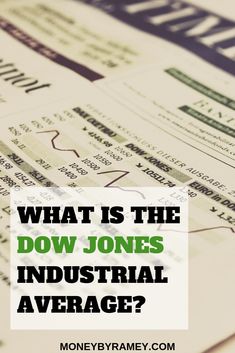The Dow Jones Industrial Average (DJIA) is one of the most important stock indices in the world. It includes 30 of the largest and most influential U.S. companies, making it a great way to track where the economy is headed. Here’s a rundown of what’s happened over the past few days: On Wednesday, November 14, 2017, the Dow Jones Industrial Average rose 0.5%. This was primarily due to gains in technology stocks like Microsoft and Amazon. On Thursday, November 15, 2017, the Dow Jones Industrial Average rose 0.8%.
This was due to gains across all sectors of the market, with particularly strong performance from financial stocks and health care stocks. On Friday, November 16th, 2017, the DJIA rose 1%. This was primarily due to gains in consumer staples and industrials stocks. Looking Ahead… The market is volatile and can go up or down at any time – so always be prepared for whatever may happen! But based on recent trends, it seems that there are good opportunities for investors in the market right now. Keep an eye on your investments and stay tuned for updates as they happen – you definitely don’t want to miss out on any
What is the Dow Jones Industrial Average?
The Dow Jones Industrial Average (DJIA) is a stock market index that consists of 30 large companies. The index was created in 1896 and is owned and operated by Dow Jones & Company.
The DJIA rose for the first time on record on Wednesday, with five components posting gains of at least 1%. Healthcare stocks led the way higher, with UnitedHealth Group (UNH) soaring 5.5%, followed by Aetna (AET) up 3.4%. JPMorgan Chase & Co.’s (JPM) 2% surge helped push the technology sector 2% higher as well, with Microsoft (MSFT) and Amazon.com (AMZN) both adding 1%. Financials were also strong contributors to the blue-chip index’s advance, with Wells Fargo & Co.’s (WFC) 3% increase helping lift the banking sector 1%.
Looking ahead, investors are monitoring potential interest rate hikes from the Federal Reserve this week. If such increases come to fruition, it could lead to weaker stock prices by dampening demand for stocks. Additionally, Trump’s upcoming trade negotiations with China are expected to weigh on stocks in the near term…
The Dow Jones Industrial Average (DJIA) – Latest News
The Dow Jones Industrial Average (DJIA) is a stock index of 30 leading U.S. companies. It was developed in 1896 and is considered to be one of the most important indicators of the health of the U.S. economy. The DJIA is composed of the following components:
The DJIA has been relatively stable over time, with only minor corrections or fluctuations. However, there have been notable jumps and falls in its value over the years, primarily due to economic events such as recessions or market crashes.
The DJIA reached all-time highs during the late 1990s and early 2000s, but it fell sharply during the 2008 financial crisis, eventually reaching its lowest point in history in late 2012. Since then, however, it has gradually regained its previous levels, and as of September 2018 was trading at about 2700 points per share.
The Dow Jones Industrial Average – Factors that Affect its Performance
The Dow Jones Industrial Average (DJIA) is a stock market index consisting of 30 large companies that are generally considered to be leaders in their field. The DJIA was created in 1896 and is one of the most important indicators of stock prices and performance in the United States.
There are many factors that affect the DJIA, including earnings, dividends, prices, volume and sector weightings. The DJIA is also affected by global events, such as recessions or wars. Each day, the DJIA is compiled from data provided by its component companies.
What are the Benefits of Investing in the DJIA?
There are many benefits to investing in the DJIA, including a higher return on investment (ROI) and access to a wide variety of securities. The DJIA is comprised of the 30 largest U.S. companies by market value, so it provides a good representation of the overall economy.
The DJIA has historically provided investors with higher returns than other stocks. For example, between 1926 and 2016, Theodia returned an average of 12.3%. However, this return is not guaranteed and can vary greatly depending on the market conditions at any given time. In fact, during some periods Theodia has returned much less than others. Still, over time it has been one of the most reliable investment options available.
Another benefit of investing in the DJIA is that it offers easy access to a wide variety of securities. This means that you can find stocks that match your risk tolerance and investment goals. Plus, you can also invest in sectors of the market that aero interest to you.
Overall, there are many reasons why investors should consider investing in the DJIA. It offers stability and reliability in terms of returns, while also giving you access to a wide range of investments options.
Conclusion
The Dow Jones Industrial Average (DJIA) is an invaluable tool for investors and traders, providing real-time information on the performance of America’s biggest companies. This overview will take you through the latest news and events that have affected the DJIA, so that you can stay up to date with all the important updates.

